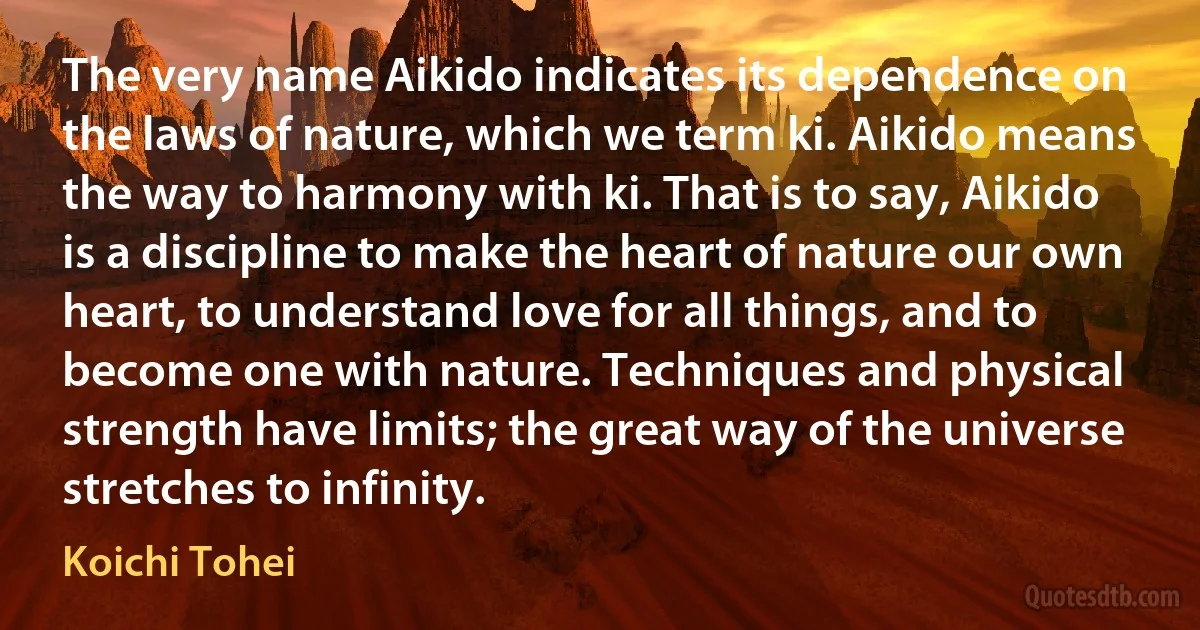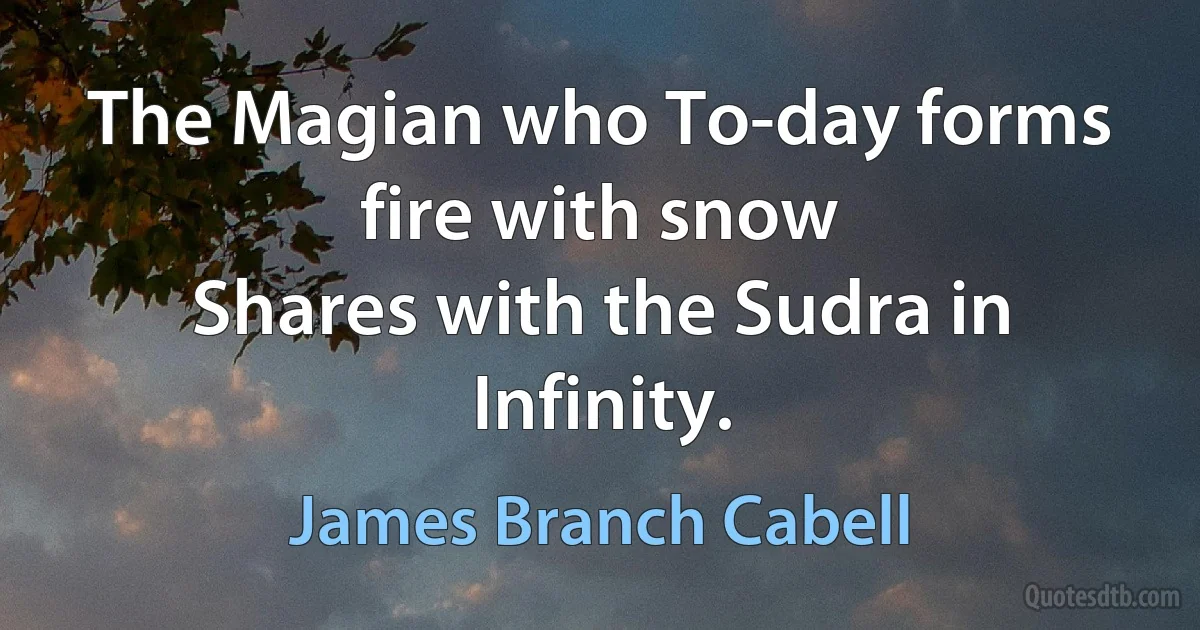Infinity Quotes - page 12
My volition shrinks from the painful task of recalling my humiliation; yet, like a second Prometheus, I will endure this and worse, if by any means I may arouse in the interiors of Plane and Solid Humanity a spirit of rebellion against the Conceit which would limit our Dimensions to Two or Three or any number short of Infinity.

Edwin Abbott Abbott
Infinity is the land of mathematical hocus pocus. There Zero the magician is king. When Zero divides any number he changes it without regard to its magnitude into the infinitely small [great? ], and inversely, when divided by any number he begets the infinitely great [small? ]. In this domain the circumference of the circle becomes a straight line, and then the circle can be squared. Here all ranks are abolished, for Zero reduces everything to the same level one way or another. Happy is the kingdom where Zero rules!

Paul Carus
As a man exhibits himself in physical forms and actions, so there is one other Spirit, a great, wide, mighty, infinite, eternal Spirit back there in the depths of space, and in the present, and in the future, and in the abysses of space, who at His will wrestles into existence great globes, and keeps them in their position. He builds them, and places on them these mysterious forms of earth which are signals hung out over these abysses to tell coming spirits who He is, what He is, what He does, how high is His throne, and how vast is His power from eternity to eternity, from infinity to infinity through all ages of all time; He is holding forth to men and angels these external tokens of His almighty power, of His infinite skill, and of His everlasting love.

Randolph Sinks Foster
The one Reality takes manifold names and forms as a result of human ignorance. It is one and the same Thing that a Bhakta calls God, a Jnani calls Brahman, a Shakta calls Shakti, an Atheist calls Nature, a Scientist calls Force or Energy, a Christian calls Father in Heaven, a Mussulman calls Allah, some others call Infinity or Truth and a Vedantin calls Atman or Self. Whatever different names there may be, the fact remains that the Thing is one and the same. The difference is only in names. The Absolute Thing, which is beyond name and form, is birthless, growthless, decayless, deathless, sexless, All-pervading, All-knowing, All-blissful, without beginning, without end, changeless, beyond time, space and causation. The One Thing or the Ocean of Consciousness by Itself is ever the same - One only without a second.

Swami Narayanananda
I had a feeling once about Mathematics that I saw it all. Depth beyond depth was revealed to me the Byss and Abyss. I saw as one might see the transit of Venus or even the Lord Mayor's Show a quantity passing through infinity and changing its sign from plus to minus. I saw exactly why it happened and why the tergiversation was inevitable but it was after dinner and I let it go.

Winston Churchill
All those... who discourse concerning nature, always subject a certain other nature of... elements, to the infinite... But no one of those who make the elements to be finite introduces infinity. Such, however, as make infinite elements, as Anaxagoras and Democritus, say that the infinite is continuous by contact. ...Rationally, too, do all philosophers consider the infinite as a principle; for it cannot be in vain, nor can any other power be present with it than that of a principle: for all things are either the principle, or from the principle; but of the infinite there is no principle, since otherwise it would have an end. ...it is also unbegotten and uncorruptible, as being a certain principle: for... end is the corruption of everything. ...It likewise appears to comprehend and govern all things, as those assert who do not introduce other causes beside the infinite... It would seem also that this is divine: for it is immortal and indestructible, as Anaximander says, and most of the physiologists.

Aristotle
I see them before me and connect them directly with the consciousness of my existence. The former begins from the place I occupy in the external world of sense, and enlarges my connection therein to an unbounded extent with worlds upon worlds and systems of systems, and moreover into limitless times of their periodic motion, its beginning and continuance. The second begins from my invisible self, my personality, and exhibits me in a world which has true infinity, but which is traceable only by the understanding, and with which I discern that I am not in a merely contingent but in a universal and necessary connection, as I am also thereby with all those visible worlds.

Immanuel Kant
He is Eternal and Infinite, Omnipotent and Omniscient; that is, his duration reaches from Eternity to Eternity; his presence from Infinity to Infinity; he governs all things, and knows all things that are or can be done. He is not Eternity or Infinity, but Eternal and Infinite; he is not Duration or Space, but he endures and is present. He endures for ever, and is every where present; and by existing always and every where, he constitutes Duration and Space.

Isaac Newton
MacUser: Which person do you most admire?
Jef Raskin: For what attribute? Once again you ask a question that linearises a complex matter. I can name many. Let's start with people named George: George Cantor for moving infinity out of philosophy into mathematics, George Washington for showing how a leader should relinquish power, and George Bernard Shaw for his humanity... Or we can do it by subject and admire Aristotle, Isaac Newton and Albert Einstein for their pulling from nature comprehensible laws; or Euclid, Gauss and Gödel for their contributions to mathematics; or people who have influenced me very directly, in which case I'd mention my very admirable parents and the teacher who taught me to be intellectually independent, L R Genise; or how about Claude Shannon without whose work on information theory I would have been lost.

Jef Raskin



